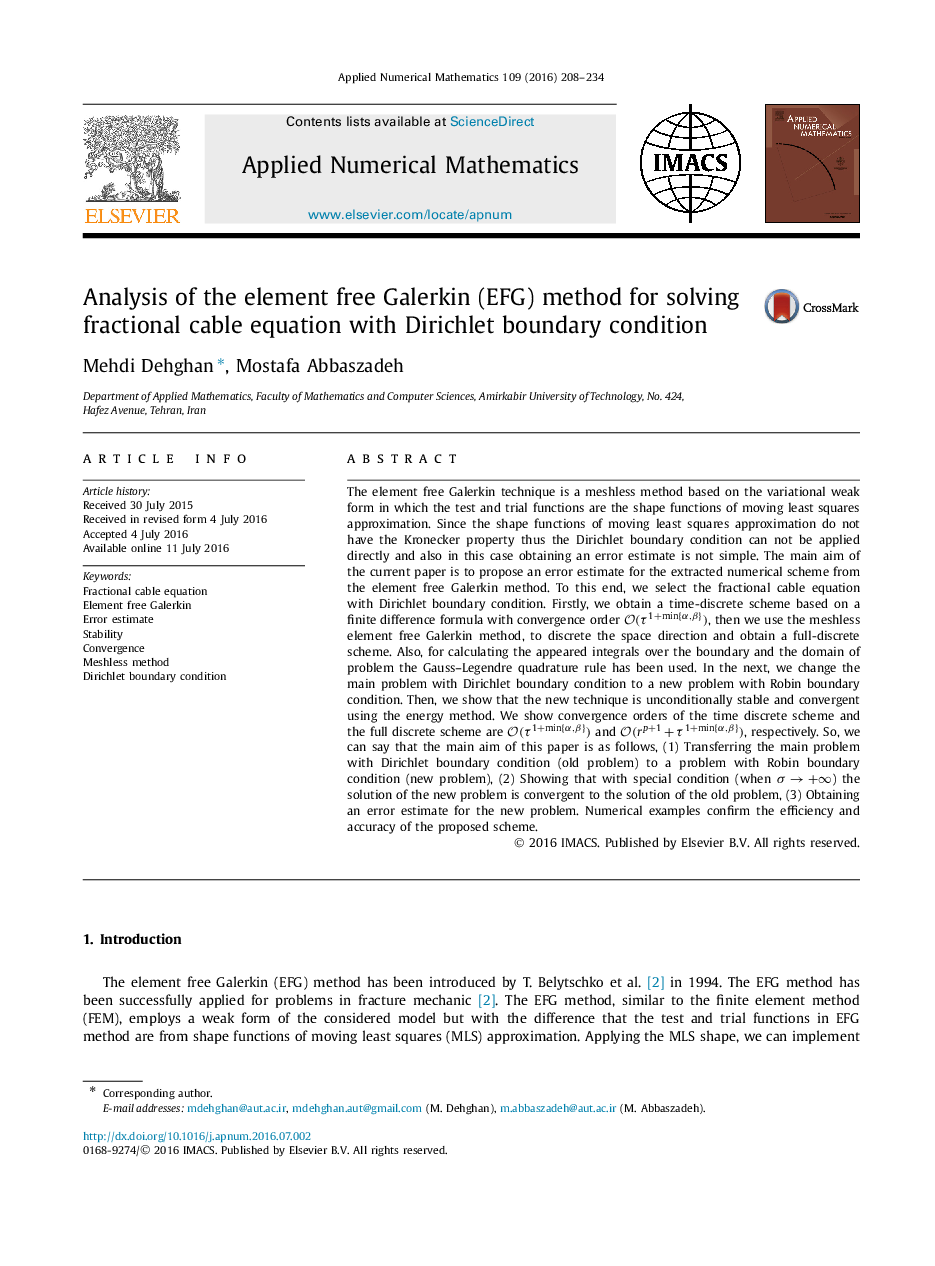| Article ID | Journal | Published Year | Pages | File Type |
|---|---|---|---|---|
| 4644845 | Applied Numerical Mathematics | 2016 | 27 Pages |
The element free Galerkin technique is a meshless method based on the variational weak form in which the test and trial functions are the shape functions of moving least squares approximation. Since the shape functions of moving least squares approximation do not have the Kronecker property thus the Dirichlet boundary condition can not be applied directly and also in this case obtaining an error estimate is not simple. The main aim of the current paper is to propose an error estimate for the extracted numerical scheme from the element free Galerkin method. To this end, we select the fractional cable equation with Dirichlet boundary condition. Firstly, we obtain a time-discrete scheme based on a finite difference formula with convergence order O(τ1+min{α,β})O(τ1+min{α,β}), then we use the meshless element free Galerkin method, to discrete the space direction and obtain a full-discrete scheme. Also, for calculating the appeared integrals over the boundary and the domain of problem the Gauss–Legendre quadrature rule has been used. In the next, we change the main problem with Dirichlet boundary condition to a new problem with Robin boundary condition. Then, we show that the new technique is unconditionally stable and convergent using the energy method. We show convergence orders of the time discrete scheme and the full discrete scheme are O(τ1+min{α,β})O(τ1+min{α,β}) and O(rp+1+τ1+min{α,β})O(rp+1+τ1+min{α,β}), respectively. So, we can say that the main aim of this paper is as follows, (1) Transferring the main problem with Dirichlet boundary condition (old problem) to a problem with Robin boundary condition (new problem), (2) Showing that with special condition (when σ→+∞σ→+∞) the solution of the new problem is convergent to the solution of the old problem, (3) Obtaining an error estimate for the new problem. Numerical examples confirm the efficiency and accuracy of the proposed scheme.
